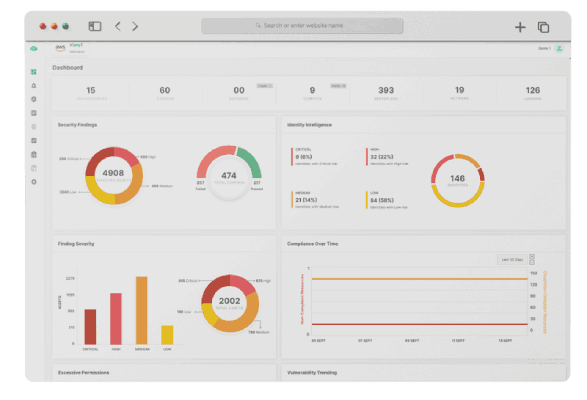Jenkins Integration with CloudDefense.AI
Integrating Jenkins with CloudDefense.AI provides seamless continuous security testing and automated vulnerability management, enhancing DevSecOps practices for a more robust and secure software development pipeline.
Integration of Jenkins with CloudDefense.AI
What is Jenkins?
Jenkins is an open-source automation server that allows developers to build, test, and deploy software projects. It is widely used in the software development industry to support continuous integration and delivery processes. Jenkins simplifies the development workflow by automating repetitive tasks such as code compilation, testing, and deployment. It also integrates with various tools and platforms, making it flexible and customizable for different development environments.
Benefits of integrating Jenkins with CloudDefense.AI
Integrating Jenkins with CloudDefense.AI offers several benefits for enhancing cybersecurity in cloud environments. Firstly, it enables automated security scanning and analysis of code in repositories, ensuring that potential vulnerabilities or security flaws are detected early in the development cycle. This not only reduces the risk of exposing sensitive data but also saves time and effort for developers, allowing them to focus on writing secure code.
Secondly, CloudDefense.AI scans web applications and cloud tools such as CIEM (Cloud Infrastructure Entitlement Management) and CSPM (Cloud Security Posture Management) for potential security risks. By integrating with Jenkins, these scans can be seamlessly incorporated into the CI/CD pipeline, providing real-time feedback on security posture before applications are deployed into the cloud.
Finally, CloudDefense.AI utilizes techniques like attack graph analysis to identify potential attack paths and vulnerabilities in the cloud infrastructure. Integrating with Jenkins allows for the automatic inclusion of attack graph analysis as part of the continuous security assessment, enabling proactive identification and mitigation of security risks.
How CloudDefense.AI helps secure your cloud infra and applications
CloudDefense.AI provides a comprehensive set of dev sec ops tools that help secure your cloud infrastructure and applications throughout the development life cycle. By scanning the code in repositories, it identifies vulnerabilities and areas of improvement, ensuring that only secure code is deployed into production.
In addition, CloudDefense.AI performs continuous scanning of web applications to identify potential security risks and vulnerabilities. It also extends the scanning capabilities to cloud tools such as CIEM and CSPM, ensuring that the overall security posture of the cloud environment is maintained at all times.
Furthermore, CloudDefense.AI leverages attack graph analysis to visualize potential security breaches and simulate attack scenarios. By identifying attack paths, it allows for effective threat mitigation and helps prioritize security efforts. Overall, CloudDefense.AI’s robust suite of dev sec ops tools enhances the security and robustness of cloud infrastructures and applications.
Other Popular Integrations
Instructions for integrating Jenkins with CloudDefense.AI
Installing Jenkins in CloudDefense.AI's dev sec ops platform is a breeze, making it effortless to set up and integrate Jenkins into your security pipeline. Jenkins streamlines development by automating builds, testing, and deployments, ensuring efficient and secure software delivery.
Book A Live Demo
Integrating cloud infrastructure with Jenkins and CloudDefense.AI is seamless and efficient, leveraging Jenkins as an open-source automation tool that enables continuous integration and delivery, streamlining software development processes for enhanced security and efficiency.
Book A Live Demo




